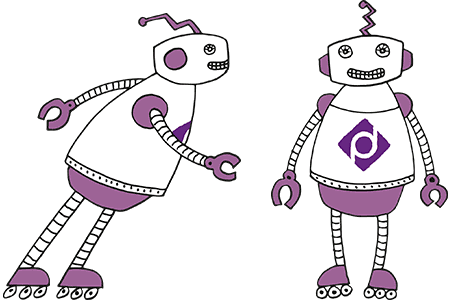
Traditionally, a successful payroll system was defined as a service that paid employees accurately and on time. Although still true today - the rapid evolution of technology within business has seen exponential growth, not only in what can be achieved through the use of technology, but also in the expectations of what businesses expect from a successful payroll system.
One such change within business and technology relates to a term defined as Robotic Process Automation (RPA). Still a relatively new concept, RPA is the use of ‘software agents’ to carry out business processes that are typically carried out by humans with a view to achieving efficiencies. Essentially, a little team of friendly robots working in the background to do things more quickly and accurately than was possible before.

RPA is especially useful for processes that are repetitive, rule-based and liable to human error - making it a perfect companion for payroll systems! We are already seeing tangible benefits from RPA in payroll with the following processes:
- New starters/leavers
- Contractual changes (position, roles, benefits)
- Permanent changes (salary increases, contact details, address changes)
- Temporary changes (bonuses, expenses, overtime)
- Absence records
- Holiday records
- Validation and reconciliation
RPA isn’t about replacing payroll professionals. Far from taking over, RPA will do all the boring stuff that humans find tedious to allow them to focus more on relationships and being more analytical with the data that becomes available as result of RPA.
One area of undoubted increased expectation for the payroll system will be its ability to seamlessly integrate with other popular business programmes such as a separate HR and finance functions. RPA will allow data to be exchanged in any format necessary quickly and accurately across any given number of platforms. Beautiful!
